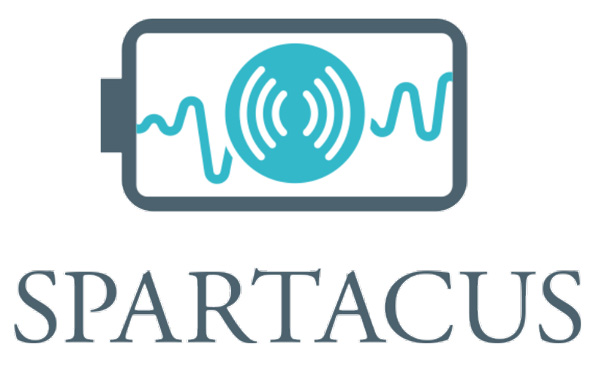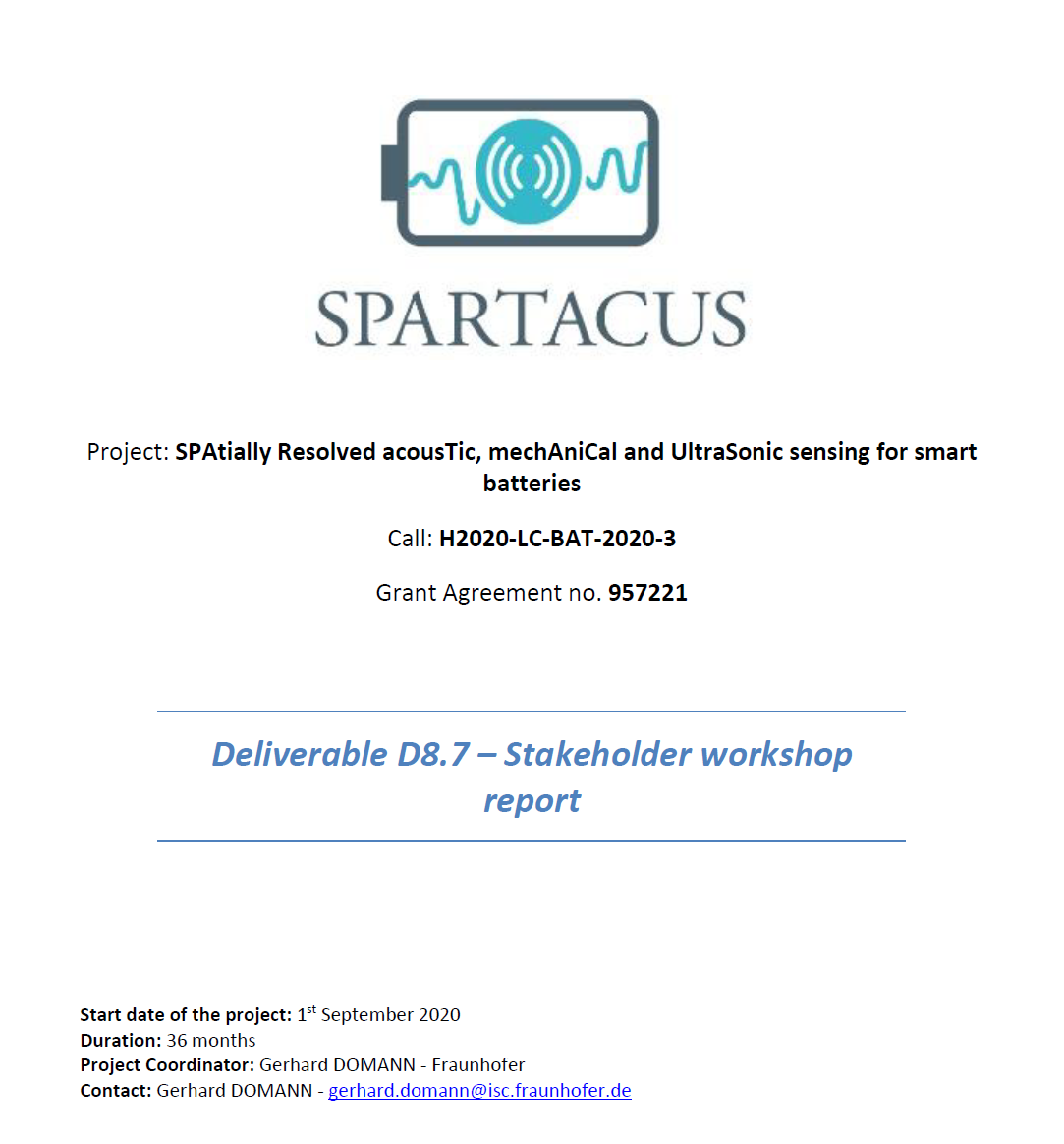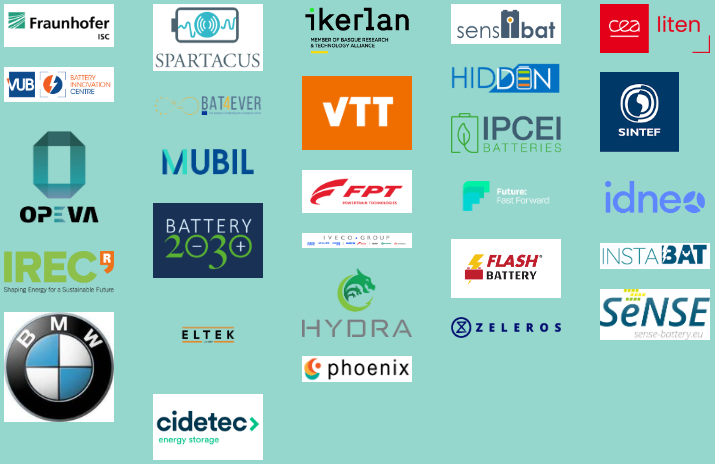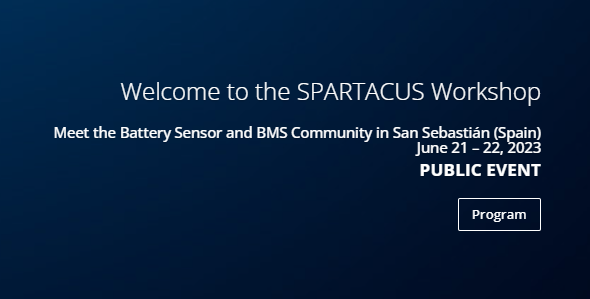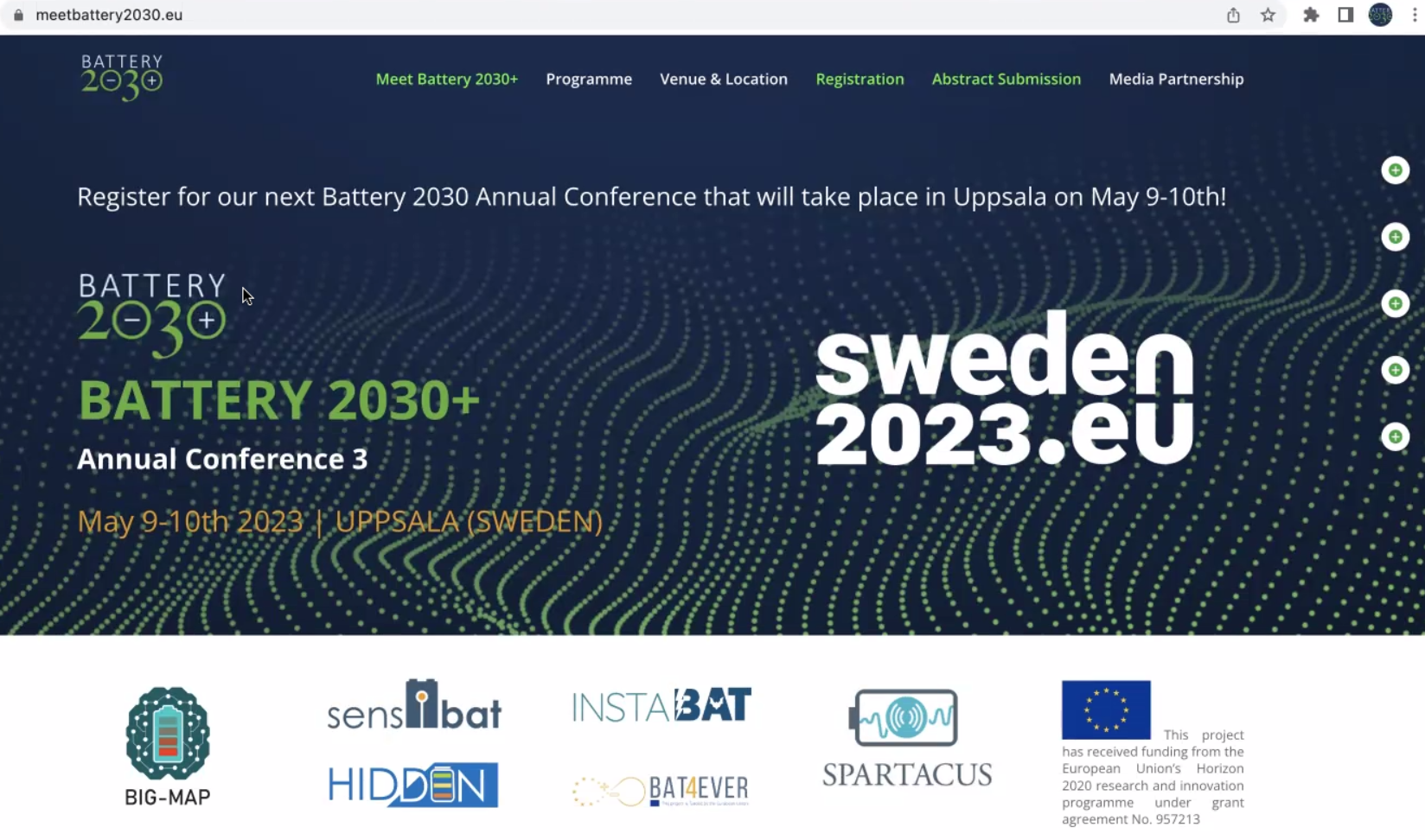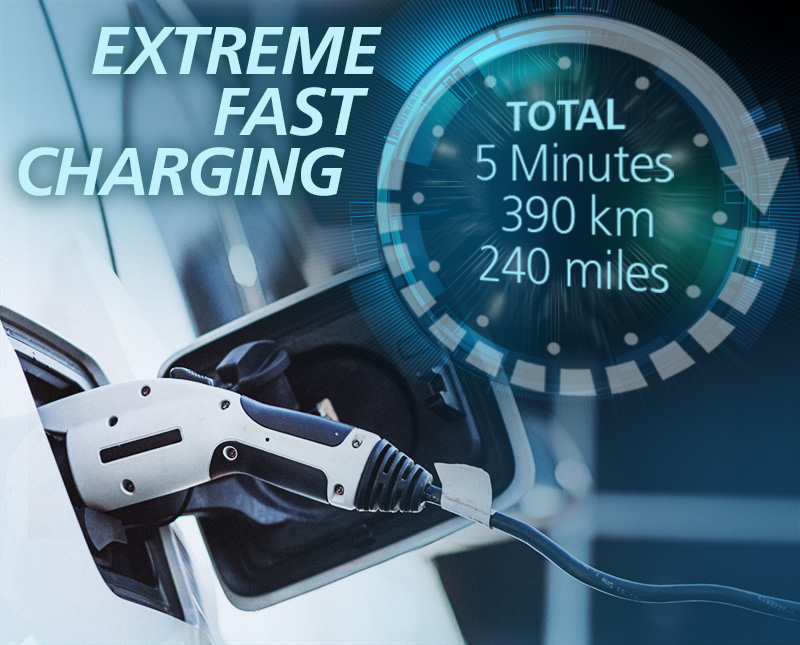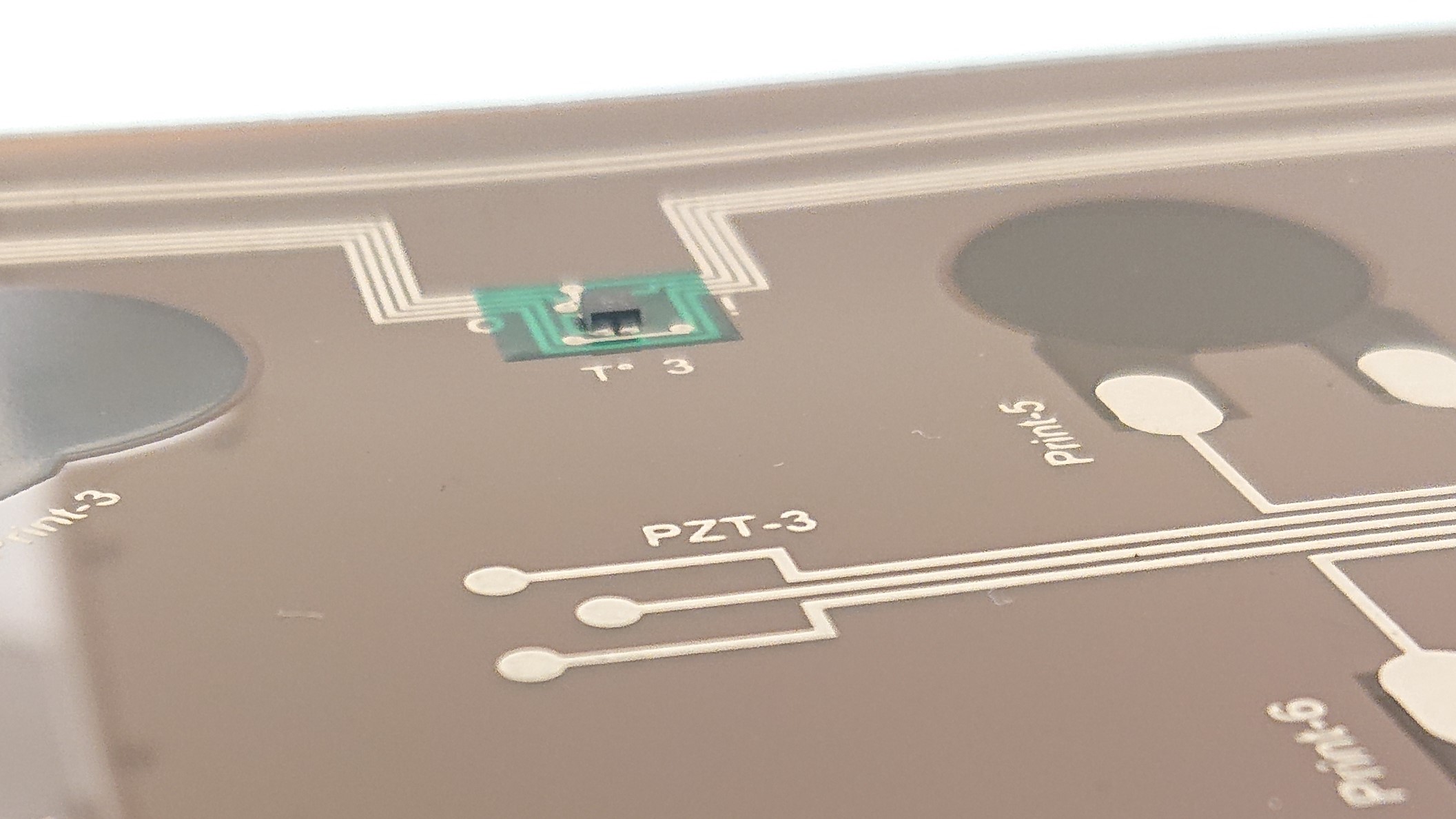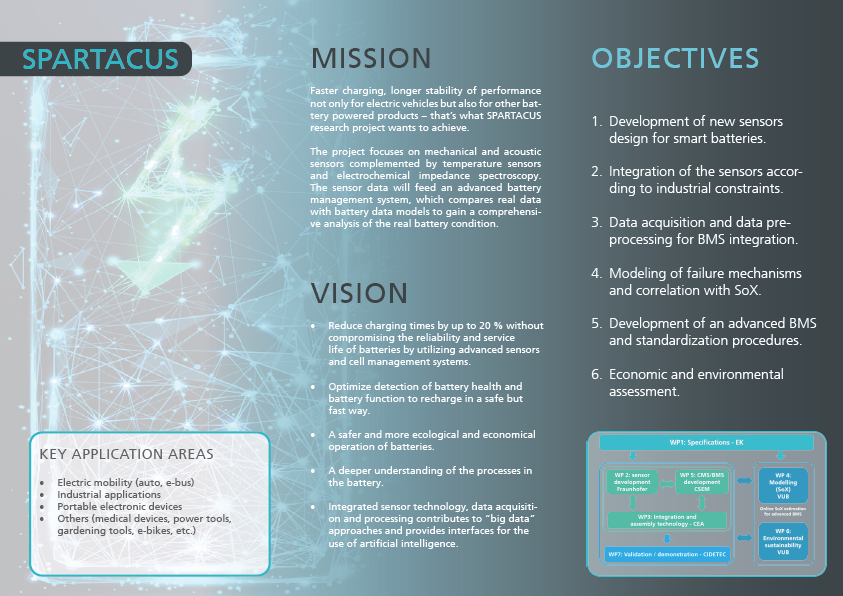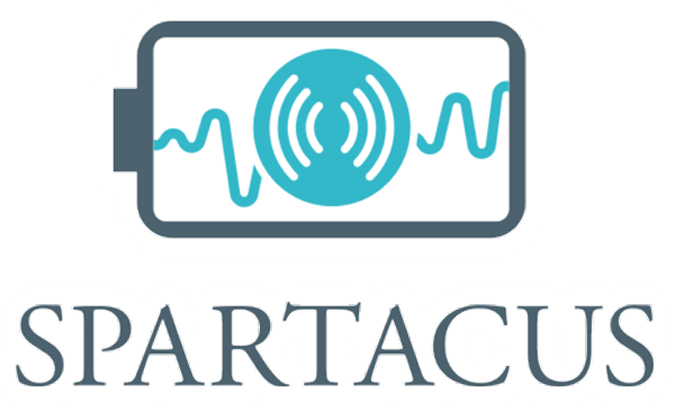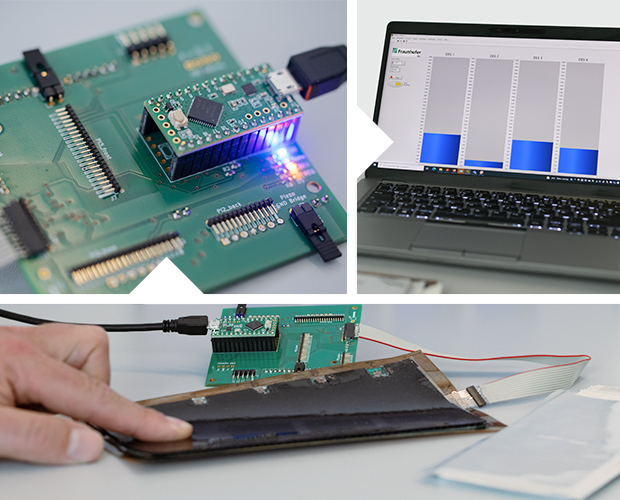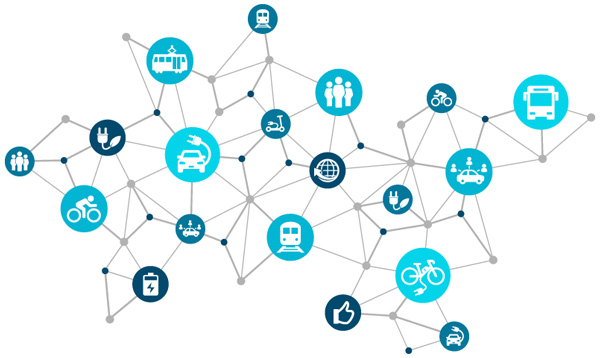What’s new?
The workshop report is now available in the download area.
For some content information please follow the button below
to register for the download area.
We are proud to have had with us so many renowned speakers!
Thank you to all authors, project teams, companies and institutions for the exciting contributions!
Workshop program updated
Public workshop “Smart sensor batteries and the future battery generation” in San Sebastián on June 21-22, 2023
Please see the latest program update. We are pleased to have Pavlo Ivanchenko from VUB MOBI on board for the new Phoenix project, and also Daniel Fons Sánchez who will talk about ZELEROS activities. And Alessandro Mariani from FPT Industrial will provide insights on the SENSE project. With more than 20 contributions from industry and research, we are proud to offer you a truly comprehensive and varied program on battery sensing and future smart batteries at the San Sebastán workshop.
Meet us in San Sebastián, June 21 – 22, 2023. Registration will close at June 12, 2023.
Workshop program online
Public workshop “Smart sensor batteries and the future battery generation” in San Sebastián on June 21-22, 2023
Drop in and find out – the full workshop program is now available on the website. Speakers from numerous battery sensing projects as well as insights into the industrial application and future trends.
The workshop is open for interested scientists and experts from battery and automotive development as well as from electro-mechanical engineering.
Smart sensor batteries and the future battery generation
Public workshop in San Sebastián on June 21-22, 2023
Join the SPARTACUS workshop to learn more about the opportunities and limitations of battery sensor technology for future battery performance. Also meet the BATTERY 2030+ battery sensing community and take advantage of the networking opportunity.
The workshop is open for interested scientists and experts from battery and automotive development as well as from electro-mechanical engineering.
BATTERY 2030+ Annual Conference 3
Registration for the upcomig Battery 2030+ Annual Conference in Uppsala is open – meet us in Sweden on May 9-10th!
More information and registration on https://meetbattery2030.eu
SPARTACUS attended the BATTERY 2030+ Annual Meeting and at the
Battery Innovation Days 2022
BATTERY 2030+ Annual Meeting, Brussels at VUB, September 12, 2022
Battery Innovation Days, Brussels at VUB, September 13-14, 2022
Great to have met the other BATTERY 2030+ initiative members in presence in Brussels. Subsequent we participated in the virtual exhibition of the Battery Innovation Days and were also present on site. If you missed us in Brussels, maybe you would like see the SPARTACUS-talk, available in our virtual booth? Register in our download center and get the link.
Read a new press release about SPARTACUS in the Fraunhofer Research News
Battery technology
SPARTACUS makes batteries stronger
Research News /
Batteries for electric cars and mobile devices are easy to use, but repeated charging and discharging accelerates aging, reduces the performance of battery cells and shortens their service life. In the SPARTACUS research project, researchers at Fraunhofer ISC are using a range of different sensors to monitor the internal status of battery cells. The data can be used to optimize the battery management system, …
Have a look to our new project flyer – SPARTACUS and its mission as pdf download.
Joint project Wokshops with HIDDEN and BAT4EVER
SPARTACUS project and two other Battery 2030+ projects – BAT4EVER and HIDDEN – are collaborating in workshops to create synergies between battery sensing and self healing approaches for batteries. The focus is on battery performance and reliability – for example, how can SPARTACUS sensors detect self healing processes, or how can sensor signals trigger self healing processes if necessary? The last two workshops with the two sister projects took place in February and March. Follow us on LinkedIn to stay tuned.
March 8, 2022 – International Women’s Day
Get more women inspired by research and battery technology – statement from Maitane Berecibar, Professor and head the Battery Innovation Center, Vrije Universiteit Brussel, Workpackage Leader in the SPARTACUS project
What is your research about?
Together with my team, we study the batteries of the future. Starting by prototyping new battery technologies, upscaling, testing and developing all smart algorithms and functionalities that are needed for a battery pack to be used in an application.
Why did you choose to get into science?
Since I was a kid I was intrigued by science, maths and physics. I was also very much aware of making our world a better place by recycling and understanding the problems on pollution and the scarcity of resources.
Therefore, developing technological solutions for a better, greener and more sustainable wold was without any doubt what I wanted to do.
What needs to be done to get more women into the field of battery research?
It is important to always highlight that women are essential in science. Our thoughts, efforts and minds are needed to develop technology. I would like to say to all girls and women: Follow your dreams and never give up, you are supported!
Two of the BATTERY 2030+ project teams – the HIDDEN project and SPARTACUS – met for a joint workshop on Feb 8, 2022. The aim was to foster synergy between self healing and sensing technologies for future batteries
The SPARTACUS research project as part of the EU research initiative BATTERY 2030+ has now been running for around a year. The project has successfully mastered the first milestones and project goals. On the way to sensor-based optimization of charging times, range and service life for lithium-ion batteries, the SPARTACUS project team has worked on a number of partial aspects over the past 12 months. Now the individual components can be combined into a complete system.
Read more in the current press release…
What We Do
Faster charging, longer stability of performance not only for electric vehicles but also for smartphones and other battery powered products – that’s what the recently started SPARTACUS research project wants to achieve. By utilizing advanced sensors and cell management systems, SPARTACUS aims to reduce charging times by up to 20 percent without compromising the reliability and service life of batteries. The European Union is funding SPARTACUS as part of the BATTERY 2030+ research initiative.

Click and find more about the speakers and their talks at the SPARTACUS workshop in San Sebastián
News and trends about future battery trends – meet us in June in beautiful San Sebastián © CIDETEC
More information on the Workshop in beautiful San Sebastián © CIDETEC
© BATTERY 2030+ More information on the upcoming event in Uppsala on the website
© Fraunhofer ISC for SPARTACUS
SPARTACUS has set out to revolutionize fast charging for batteries through sensor technology. Meet us at Battery Innovation Days 2022!
© A. Latour, CEA for SPARTACUS
Details of the printed circuit board for the battery sensor system with mounted temperature sensor and printed ultrasonic sensors.
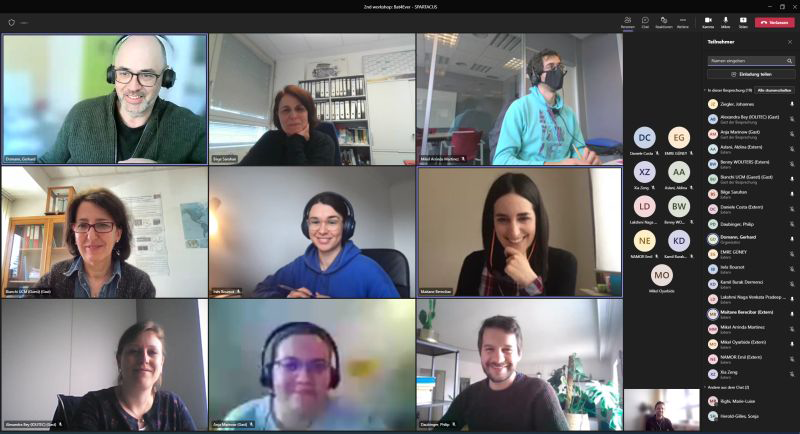
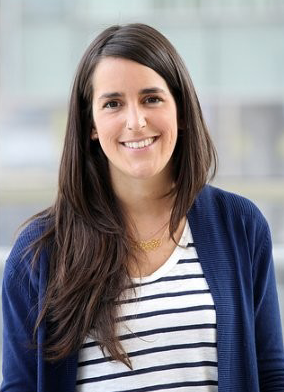
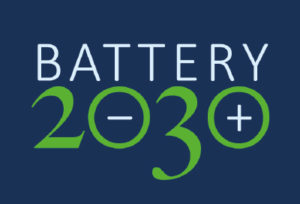
BATTERY 2030+ is a large-scale research initiative in Europe with the aim of developing more environmentally friendly and safer batteries with better performance, greater storage capacity options and longer life. Under the umbrella of BATTERY 2030+, research projects from three different areas are currently being launched:
- Development of a European infrastructure plat-form to combine large-scale calculations and experimental studies to map the complex reactions that take place in a battery.
- Development and integration of sensors that monitor and report the condition of the battery in real-time.
- Development of regenerative components that extend battery life and improve safety.
BATTERY 2030+ is coordinated by Prof. Kristina Edström, University of Uppsala, Sweden. The consortium comprises 23 partner organizations and companies from 14 European countries.
SPARTACUS in a nutshell
SPARTACUS stands for “Spatially resolved acoustic, mechanical and ultrasonic sensing for smart batteries”. The project aims to develop a multi-functional sensor array technology for various types of batteries.
News and Events
Be part of the SPARTACUS community.
Take anytime a look for project and partner news, press realeases and future events.
Motivation
The SPARTACUS project will change common LIB BMS fundamentally by implementing a dedicated model on cell level (CMS) fed by an array of integrated acousto-mechanical and thermal sensors and combined with advanced impedance spectroscopy.
Application Areas
The SPARTACUS project supports this goal by maximizing the performances of the battery in terms of fast charge and cycle life to increase first and second life use, and therefore duration of stay in material cycle.
Technologies
SPARTACUS will feature smart battery cells with affordable sensor solutions in order to detect degradation and failure mechanisms, intentionally before loss of performance takes place to eventually unfold the full potential of LIB.
Partners and Stakeholders
The consortium is composed of 4 research organizations, 1 university and 2 industrials covering all relevant expertise needed.
Smarter batteries for Europe
smart monitored – smart and fast charged
Spatially resolved acoustic, mechanical and ultrasonic sensing for smart batteries – SPARTACUS
million €
months left
Project-Gallery
Copyrights of the pictures are owned by the project partners.
If you’re interested, send an email to Marie-Luise Righi.
SPARTACUS Partners
Partners from industry and research

How to participate
Become member of the SPARTACUS Industrial Advisory Board
CONTRIBUTE
- Industrial product development experience
- Technical requirements
- Market needs
- A little time and attention, once a year – or more often, if you like.
BENEFIT
- Stay informed about the ongoing project.
- Influence the alignment of the project goals for your own needs.
- Discuss with the work package leaders.
- Benefit from networking within the Battery 2030+ innovation platform.
- Have a front row seat when it comes to using project results.
CONTACT
Project Coordinator
Gerhard Domann
gerhard.domann@isc.fraunhofer.de
Dissemination Manager
Marie-Luise Righi
marie-luise.righi@isc.fraunhofer.de
Got any questions?
Don’t hesitate to contact us!
Project Coordinator
Gerhard Domann
Fraunhofer ISC
gerhard.domann@isc.fraunhofer.de
————————————————–
Dissemination Manager
Marie-Luise Righi
Fraunhofer ISC
marie-luise.righi@isc.fraunhofer.de
